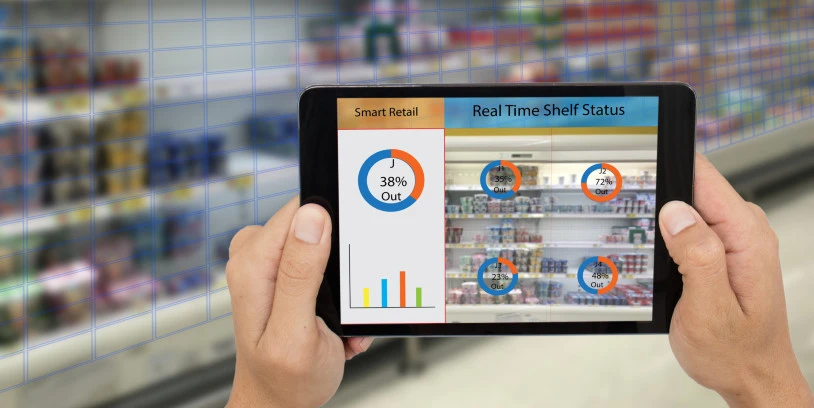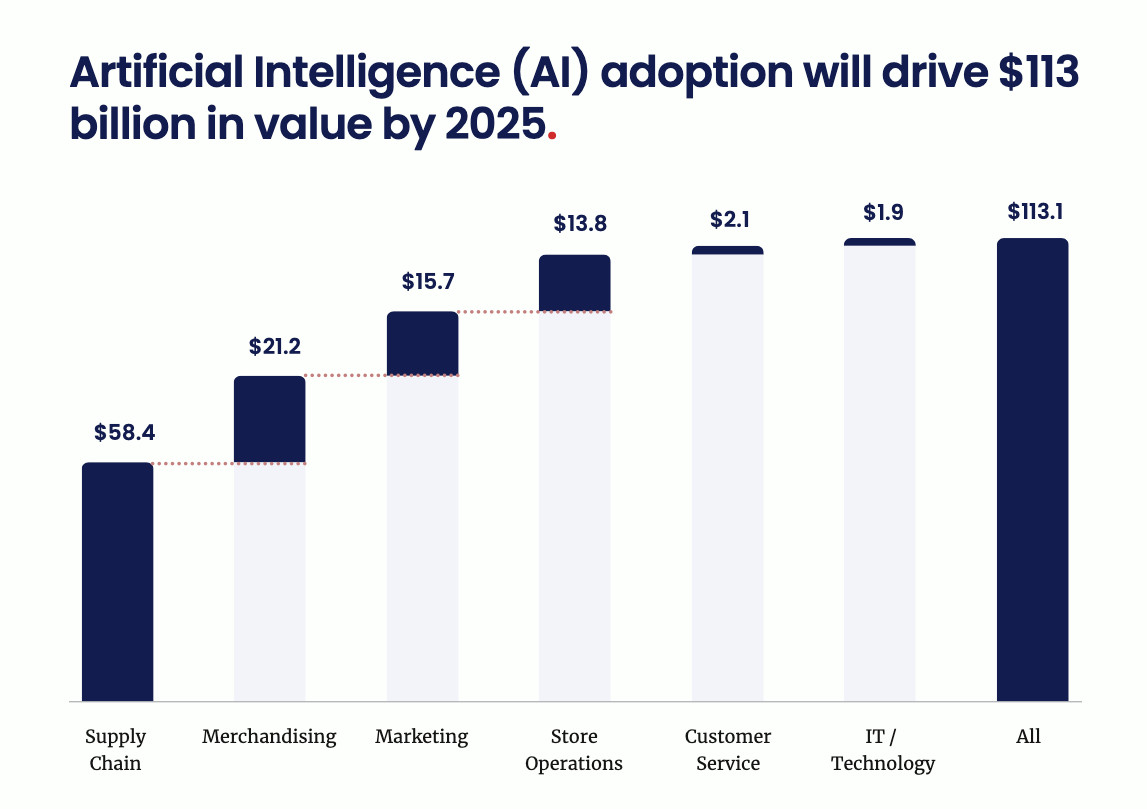The use of Artificial Intelligence that supermarkets will be developing over the next 24 months will bring $113 billion in operational efficiencies and new revenue opportunities by 2025, revealed the study “The Impact of AI on Supermarkets,” the first report of a new Grocery Doppio strategic research partnership with FMI-The Food Industry Association.
The first study in the research program surveyed 152 supermarket executives detailing expectations, challenges, and use cases for AI in grocery stores over the next 24 months.
According to Grocery Doppio, automation and robotics will replace about 18% of current tasks in supermarkets, resulting in increased efficiency.
In addition, AI-based augmentation and assistance will increase productivity in non-routine “creative” tasks by 23%.
Likewise, supply chain and logistics present the most significant opportunity for automation, as 81% of supermarkets participating in the survey acknowledge.
“Today’s shoppers are redefining value and finding that it goes beyond price to include quality, relevance, experience, and convenience,” said Doug Baker, Vice President of Industry Relations at FMI. “This research program is designed to give customized insights to grocery retailers that they can implement and weave into their technology, e-commerce, and omnichannel business strategies.”
Grocery Doppio is an independent source of grocery information and data designed by Incisiv and Wynshop to help retailers drive, accelerate and sustain digital growth.
“We are delighted to be founding partners in this initiative with FMI and Incisiv and look forward to contributing to the digital maturity of our industry and further facilitating the online success of grocery retailers,” said Charlie Kaplan, Chief Revenue Officer at Wynshop.
Related Article: 5 Benefits of Artificial Intelligence for Supermarkets
The study indicates that generative AI has attracted significant attention and adoption among supermarkets. A remarkable 83% of supermarkets have held high-level meetings to discuss the potential of ChatGPT, showing strong interest in the technology.
In addition, 57% of supermarket executives have taken a standalone approach, experimenting with public models of generative AI.
The top use cases identified by supermarkets include improving customer service, with 78% recognizing its potential, followed closely by on-site search and product recommendations, with 73%.
Within this context, the survey indicates that 71% of supermarkets see generative AI as a valuable tool for developing tools for store staff.
Other findings are:
- 73% of grocery technology executives expect AI capabilities to be embedded in most or all of their technology software by 2025.
- Supermarkets expect to increase their AI spending by 400% by 2025.
- AI could eliminate or resolve 18% of store employees, 73% of store tasks, and 53% of shopper queries.
However, the study warns that supermarkets face challenges in adopting AI capabilities related to resources and culture.
Only 28% of supermarkets are confident of effectively using AI by 2025 due to obstacles such as limited budgets, ROI justification, infrastructure limitations, talent shortages, and lack of a defined strategy.
Likewise, culture is a significant impediment, as grocers rely more on intuition than data-driven decision-making.
Therefore, AI is not just a technological or analytical shift. Supermarkets must embrace a cultural shift towards data-driven decision-making to have the opportunity to leverage AI effectively.
This report is part of multi-year quarterly insights and community engagement program to help grocers navigate new technologies and meet evolving shopper expectations.



